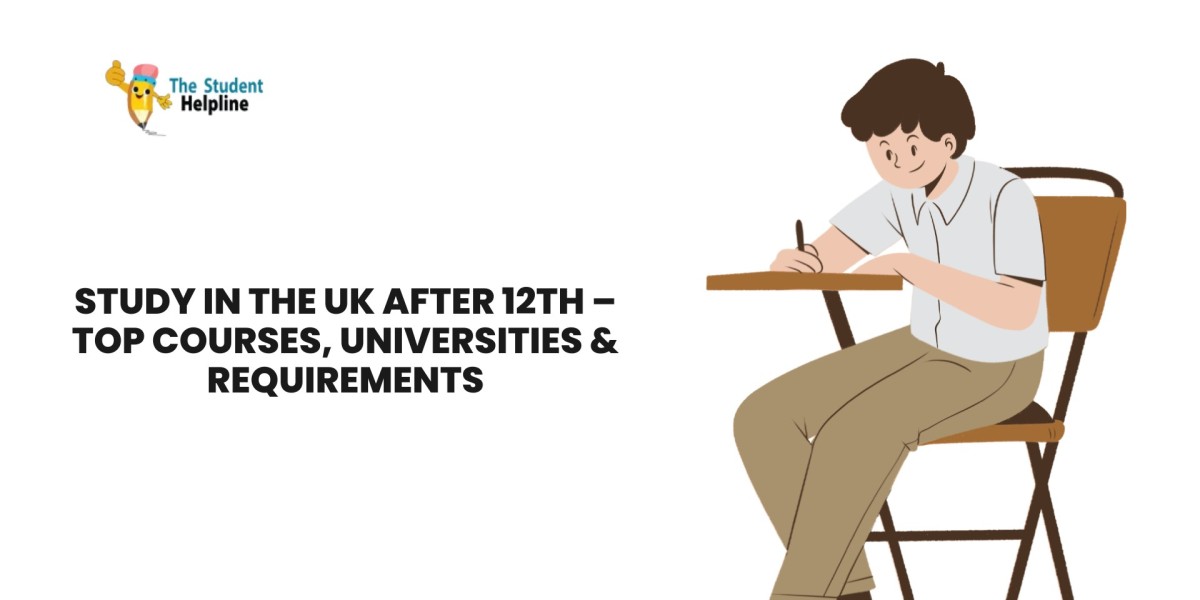The United Kingdom (UK) is one of the most popular destinations for international students seeking world-class education. With top-ranked universities, diverse course offerings, and excellent career prospects, study in UK after 12th opens doors to global opportunities. The UK education system provides flexible study options, practical learning experiences, and internationally recognized degrees, making it an ideal choice for students aspiring to build a successful career.
Benefits of Studying in the UK After 12th
1. Globally Recognized Universities
The UK is home to some of the world's top universities, including the University of Oxford, University of Cambridge, Imperial College London, and the London School of Economics (LSE). These institutions offer high academic standards, expert faculty, and cutting-edge research opportunities.
2. Wide Range of Courses
Students can choose from a variety of undergraduate programs in fields such as engineering, business, medicine, arts, and sciences. The UKs education system emphasizes skill development, critical thinking, and practical knowledge.
3. Shorter Duration of Courses
Unlike many other countries, undergraduate degrees in the UK typically take only three years to complete, which helps students save time and tuition fees while entering the job market earlier.
4. Work While Studying
International students in the UK can work up to 20 hours per week during term time and full-time during holidays, allowing them to gain work experience and support their finances.
5. Post-Study Work Opportunities
The Graduate Route Visa allows students to stay and work in the UK for up to two years after completing their degree, providing ample opportunities to gain international work experience.
Top Courses to Study in the UK After 12th
1. Business Management
The UK is home to some of the best business schools in the world. Courses like BBA, Economics, and Finance from institutions like the London Business School and Warwick Business School provide excellent career opportunities.
2. Engineering Technology
Engineering programs in the UK focus on practical learning and innovation. Fields such as Mechanical, Civil, Electrical, and Computer Engineering are highly sought after. Top universities include Imperial College London and the University of Manchester.
3. Medicine Healthcare
For students aspiring to become doctors, nurses, or pharmacists, the UK offers world-class medical programs. The University of Oxford, University of Cambridge, and Kings College London are known for their medical excellence.
4. Law
A Bachelor of Laws (LLB) from a UK university is highly respected worldwide. Students can later qualify as solicitors or barristers and practice internationally.
5. Arts Humanities
Courses in English Literature, History, Philosophy, and Fine Arts from top UK universities are known for their rich academic excellence and research focus.
6. Computer Science IT
With the rise of AI, cybersecurity, and data science, degrees in Computer Science and Information Technology from UK universities provide excellent career prospects.
Eligibility Requirements to Study in the UK After 12th
1. Academic Requirements
- Students must have completed 12th grade with a minimum of 60-70% marks, depending on the course and university.
- Science and engineering courses may require higher scores in subjects like Mathematics, Physics, and Chemistry.
2. English Language Proficiency
Most universities require students to take an English proficiency test such as:
- IELTS (6.0 - 7.0 bands depending on the course)
- TOEFL (80-100 iBT score)
- PTE (50-65 score)
3. Entrance Exams (If Required)
Certain courses, especially medicine and law, may require entrance exams such as:
- UCAT/BMAT (for Medicine courses)
- LNAT (for Law courses)
How to Apply to UK Universities?
Step 1: Research and Choose the Right Course University
Explore university rankings, course structure, and tuition fees before finalizing your choice.
Step 2: Apply Through UCAS (Universities and Colleges Admissions Service)
Most undergraduate applications are submitted via UCAS, where students can apply to multiple universities in one go.
Step 3: Submit Required Documents
- Academic transcripts
- English proficiency test scores
- Statement of Purpose (SOP)
- Letters of Recommendation (LORs)
- Passport copy
Step 4: Receive Accept Offer Letter
Once accepted, students receive a Conditional or Unconditional Offer from the university.
Step 5: Apply for a UK Student Visa (Tier 4 Visa)
Students must provide:
- Confirmation of Acceptance for Studies (CAS) letter from the university
- Proof of sufficient funds
- Medical test results (if required)
Scholarships for Indian Students to Study in the UK
There are several scholarships available to help students manage tuition costs, such as:
- Chevening Scholarships Fully funded scholarships for outstanding students.
- Commonwealth Scholarships Available for students from Commonwealth countries.
- GREAT Scholarships Sponsored by the UK government for Indian students.
- University-Specific Scholarships Many universities offer merit-based scholarships.
Cost of Studying in the UK
1. Tuition Fees
- Undergraduate degrees: 10,000 - 30,000 per year (varies by university and course).
- Medicine Engineering courses: Higher tuition fees, ranging from 25,000 - 40,000 per year.
2. Living Expenses
- Accommodation: 4,000 - 8,000 per year
- Food Transportation: 3,000 - 5,000 per year
- Total Estimated Cost: 15,000 - 25,000 per year
Work Opportunities for Students in the UK
1. Part-Time Jobs
International students can work:
- 20 hours per week during term time
- Full-time during holidays
2. Post-Study Work Visa
After graduation, students can stay for up to two years under the Graduate Route Visa to gain work experience.
Conclusion
Studying in the UK after 12th provides world-class education, career-enhancing opportunities best overseas education consultants, and exposure to an international environment. With top-ranked universities, a wide range of courses, and excellent post-study work options, the UK remains a preferred destination for students worldwide.











